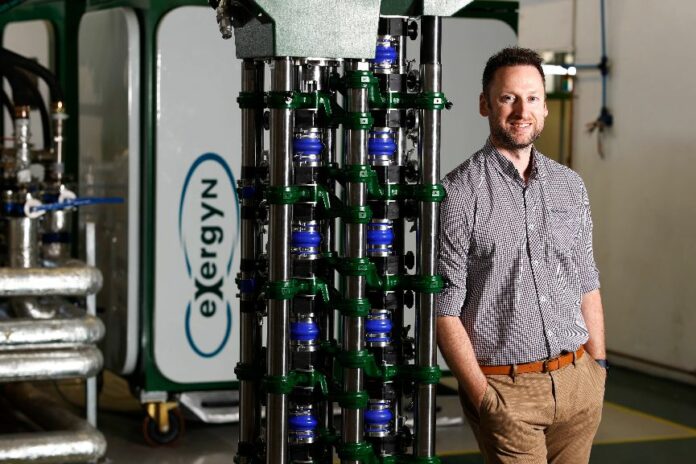Dublin-based Exergyn has just raised €30 million for its novel and sustainable thermal management technology. This latest funding for the pioneering cleantech startup was led by Mercuria and Lacerta Partners with participation from McWin.
Founded in 2012, Exergyn is on a mission to combat climate change through unique solid-state shape memory alloy technology that removes the need for destructive refrigerants. The product significantly reduces carbon emissions across a range of industries, including heating, ventilating, air-conditioning, refrigeration (HVACR), automotive, and aerospace.
The HVACR industry alone is estimated to account for more than 10% of the global CO2 emissions. While Europe is aiming to drastically reduce carbon emissions, products such as those being developed by Exergyn could have a massive positive impact. We all are now well aware of the urgency to combat climate change, and European tech startups are certainly contributing lots of innovative solutions.
Co-Founder and Managing Director Dr. Kevin O’Toole said: “Exergyn’s mission is to significantly reduce global greenhouse gas emissions by leveraging shape memory alloys (SMAs) to enable the commercial production of groundbreaking, clean energy products. We are thrilled to leverage this latest funding and begin Exergyn’s next phase, offering sustainable, cost-effective, clean solutions to a variety of industries worldwide.”
Exergyn’s sustainable solid-state solution replaces toxic refrigerants in heating and cooling products, reducing their environmental footprint significantly. Exergyn believes its efficient, affordable, emission-free heating and cooling product solutions can change the trajectory of global warming by eliminating refrigerant gases over the next 30 to 40 years.
The investment will see the company bring its thermal management solutions to market through partnerships with large multinational corporations. As well as this, it will support Exergyn’s R&D capability in Dublin and Prague, doubling the size of their team to 60 staff. Currently, the team is made up of 33 experts across Dublin, the UK, the US, and the Czech Republic.
Alexi Papaconstantinou and Ziad Noujaim at Lacerta Partners said: “Exergyn’s technology is bringing much-needed cleantech solutions and an innovative approach to tackling some of the most challenging global greenhouse gas emission issues facing a wide range of industries. We believe Exergyn is in pole position to develop several real-world solutions and applications that will enable these industries to thrive while significantly reducing their environmental footprint.”
In their contribution to the fight against carbon emissions, Exergyn will also continue to expand across new verticals, including the automotive and aerospace sectors, to enable the commercial production of groundbreaking, clean energy products. This new funding boost will support the startup to optimise its portfolio of renewable energy assets and enhance the offering further.
David Haughie, Managing Director at Mercuria noted: “The team behind Exergyn has continually demonstrated the real potential of its unique SMAs, showcasing how durable, efficient and impactful they are. Mercuria’s ambition is for these SMAs to negate the need for refrigerants in traditional sectors such as the cooling and refrigeration industry, allowing even more cost-efficient operation, with zero HFC-driven impact on the environment. We recognise the growing demand for solutions such as Exergyn’s SMA in industries worldwide, and we look forward to supporting the team towards rapid growth as they enter the next phase of the business.”




